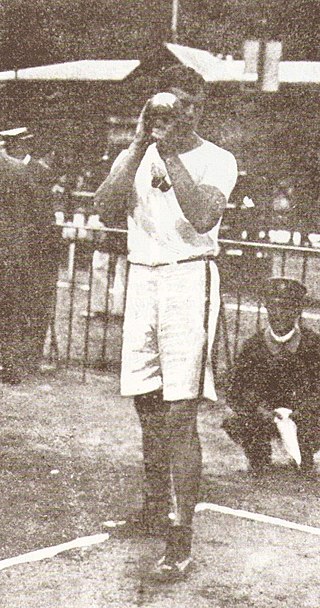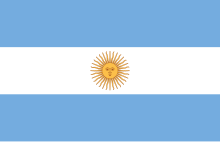
At the 1900 Summer Olympics, three croquet events were contested. Seven men and three women participated. The doubles competition was scheduled first, though it is unclear whether the French pair that won had any competition. The one-ball singles was played the next week, followed by two-ball singles the week after. France, which supplied all 10 competitors, therefore won all the medals.

The 1900 Summer Olympics were held as part of the 1900 World's Fair, during which many cycling events were contested. The IOC website currently affirms a total of 3 medal events, after accepting, as it appears, the recommendation of Olympic historian Bill Mallon regarding events that should be considered "Olympic". These additional events include the men's points race. Thus, three cycling events are considered Olympic events. These three competitions were held between 9 September and 16 September 1900. The cycling part of the World's Fair included 250 competitors, 160 of them French. In the sprint and 25 km events, 72 competitors, all men, from seven nations competed.

At the 1900 Summer Olympics, seven fencing events were contested. 260 fencers from 19 nations competed. The events took place at the Tuileries Garden.

At the 1900 Summer Olympics one gymnastics event for men was contested. The competition was held on Sunday, 29 July 1900, and on Monday, 30 July 1900. There were 135 competitors from 8 nations. The top 18 places were taken by French gymnasts, of which there were more than 100. The event was won by Gustave Sandras, with Noël Bas finishing second and Lucien Démanet third. The highest-placing foreign gymnast was Jules Ducret of Switzerland, in a tie for 19th place.

Fencing has been contested at every Summer Olympic Games since the birth of the modern Olympic movement at the 1896 Summer Olympics in Athens. There are three forms of Olympic fencing:

The men's 400 metres was a track & field athletics event at the 1900 Summer Olympics in Paris. It was held on July 14, and July 15, 1900. The races were held on a track of 500 metres in circumference. 15 athletes from six nations competed.

The men's 1500 metres was a middle-distance running event on the athletics programme at the 1900 Summer Olympics in Paris. It was held on July 15, 1900. The race was held on a track of 500 metres in circumference. Nine athletes from six nations competed. The event was won by Charles Bennett of Great Britain, the nation's first medal in the brief history of the event.

The men's triple jump was a track & field athletics event at the 1900 Summer Olympics in Paris. It was held on July 16, 1900. 13 athletes from six nations competed. The event was won by Myer Prinstein of the United States, the nation's second consecutive victory in the men's triple jump. Prinstein became the first, and through the 2016 Games, only, person to have won both the long jump and the triple jump. James Brendan Connolly took second, making him the first man to medal twice in the triple jump. Lewis Sheldon finished third, completing what would later be known as a medal sweep.

The men's shot put was a track & field athletics event at the 1900 Summer Olympics in Paris. It was held on July 14 and July 15, 1900. 11 shot putters from five nations competed. The event was won by Richard Sheldon of the United States, the nation's second consecutive victory in the men's shot put. Josiah McCracken took silver and Robert Garrett took bronze, completing an American medal sweep.

The men's discus throw was a track & field athletics event at the 1900 Summer Olympics in Paris. It was held on July 14 and July 15, 1900. 17 discus throwers from nine nations competed. The event was won by Rudolf Bauer of Hungary, the nation's first victory in the men's discus throw. František Janda-Suk gave Bohemia its first medal in the event, also in that nation's first appearance. Richard Sheldon's bronze put the United States in the top three for the second consecutive Games.

The men's hammer throw was a track & field athletics event at the 1900 Summer Olympics in Paris, the discipline's first Olympic appearance. It was held on July 16, 1900. Five hammer throwers from two nations competed. The event was won by John Flanagan of the United States, the first of his three consecutive victories in the hammer throw. The American team swept the medals, with Truxtun Hare finishing second and Josiah McCracken third.

Belgium competed at the 1900 Summer Olympics in Paris, France. It was the first appearance of the European nation. Belgium was represented in France by 78 athletes, all of them male, who competed in 11 disciplines. They comprised 95 entries in 28 events.

Australia competed at the 1900 Summer Olympics in Paris, France. Most Olympic historians keep Australian records at early Olympics separate from those of the United Kingdom, despite Australia not being an independent nation at the time.

Austria competed at the 1900 Summer Olympics in Paris, France. Austrian and Hungarian results at early Olympics are generally kept separate despite the union of the two nations as Austria-Hungary at the time.

The Russian Empire competed at the 1900 Summer Olympics in Paris. It was the first appearance of the European nation, which had entered the names of competitors for the first modern Olympics in 1896 but had failed to appear.

Argentina participated at the Olympic Games for the first time in 1900. It has participated at all subsequent Summer Olympics except in 1904, 1912, and the nation boycotted the Moscow Olympics due to its support for the United States in 1980. It participated at the Winter Olympics in 1928, 1948, 1952 and continuously since 1960.

The men's individual competition with free revolver event was one of the competitions in the Shooting at the 1900 Summer Olympics events in Paris. It was held on 1 August 1900. 20 shooters from 4 nations competed, with five shooters per nation. Medals were given for individual high scores, and the scores of the five shooters were summed to give a team score for the team event. The target designed for this competition is still being used today. The event was won by Karl Röderer of Switzerland, with his countryman Konrad Stäheli taking bronze. Between them was Achille Paroche of France with silver.

Francisco Carmelo Camet, also known as Eduardo Camet was the first Argentine fencer to compete at the Summer Olympic Games.

The men's épée was a fencing event held as part of the Fencing at the 1912 Summer Olympics programme. It was the fourth appearance of the event, which had been introduced in 1900. The competition was held from 11 to 13 July at the Östermalm Athletic Grounds. There were 93 competitors from 15 nations. Each nation could enter up to 12 fencers. The event was won by Paul Anspach of Belgium. His countryman Philippe le Hardy took bronze. Silver went to Denmark's Ivan Joseph Martin Osiier, the only medal won by the perennial Olympian who competed in seven Games over 40 years. The medals were the first in the men's épée for both nations.
Carmelo Félix Camet was an Argentine fencer who competed in the Olympic games in 1928. He was the son of Francisco Carmelo Camet, a fencer at the 1900 Summer Olympics who is sometimes considered to be Argentina's first participant at the Olympics. Trained as a lawyer, Carmelo Camet gained his training and love for fencing at an early age from his father. By the 1920s he had already won several tournaments and, in 1926, he won the Argentine national fencing championship.



















